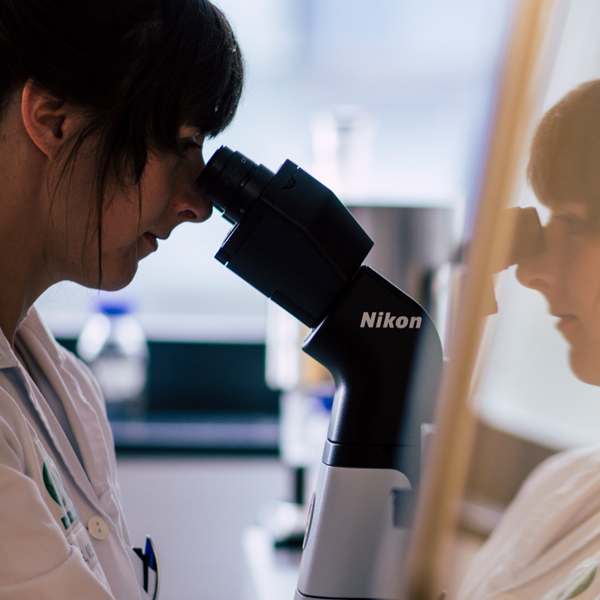-
The University
- Welcome
- Who we are
- Media & PR
- Studying
-
Research
- Profile
- Infrastructure
- Cooperations
- Services
-
Career
- Med Uni Graz as an Employer
- Educational Opportunities
- Work Environment
- Job openings
-
Diagnostics
- Patients
- Referring physicians
- Health Topics
- Health Infrastructure
Research
We work on the differentiation and function of leukocytes as well as mechanisms of immunity and immune tolerance. Phagocytes and dendritic cells are highly important in the recognition of microbes, dying cells and antigen presentation. Naive T cells develop into specialized T cells that coordinate immune response, induce effector functions and allow self-tolerance. These processes are controlled by endogenous and exogenous dietary factors. Close cooperation within the division in alignment with the center's main topics of interest ensures optimal research conditions.

Inflammation, autoimmunity and cancer
We investigate the significance of T-lymphocytes in inflammation and autoimmunity with a special emphasis on metabolic regulation of T cell reactions. We apply a multidisciplinary approach that comprises in vitro studies and in vivo disease models in order to identify new molecular and metabolic pathways that control the pathogenicity of T cells.
The research focus of the lab is on regulating immune responses in the context of autoimmune disease. Special attention is paid to explaining the role of environmental factors such as aging, nutrition and metabolism as well as their interaction in the regulation of autoreactive T cells.
Dendritic cells are present in many organs and tissues and are capable of activating naive T lymphocytes and thus inducing immune responses to microbial and cell antigens. They appear to drive immunity vs. tolerance and exist as multiple functionally relevant subsets. We investigate their development and function in immune homeostasis and disease processes.
T cells is an essential component of human adaptive immunity playing pivotal roles in pathogen recognition, regulation of immune responses, and the maintenance of tolerance toward autoantigens and commensal microbiota. Our research group focuses on unconventional T cells, a subset distinguished by their ability to recognize a broad spectrum of non-peptide antigens, including lipids, small metabolites, drug metabolites, and drug-like molecules. We study non-peptide antigen presentation in the context of cancer, metabolic and autoimmune diseases, and allergy.

Metabolism and the gut
We investigate the role of plant compounds such as vitamins, carotenoids and polyphenols in nutritional immunometabolism in dentritic cells and T cells from a translational perspective. Another focus is the influence of food quality and the gut microbiome on the immune system in connection with eating disorders, lifestyle, body fat and age.




